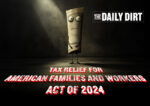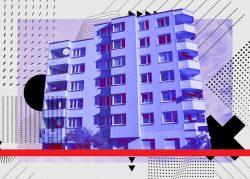Volume cap sounds like an innocuous financial term, but it’s a scourge of affordable housing finance.
It refers to the annual limit the federal government sets on private activity bonds that states can issue. These bonds are critical to financing affordable housing in the U.S. and are used in tandem with another major tool, low income housing tax credits.
Bronx Rep. Ritchie Torres has introduced a measure that would make 100 percent affordable housing projects exempt from this limit, just as large-scale infrastructure and other projects are. The Democrat said adding such projects to the list of exemptions would be a “game changer” for housing production.
“The affordability crisis in America is not an inevitability. It is a choice, it is a product of public policy,” Torres said in an interview. “We should stop tying our hands.”
Torres’ Accelerated Supply of Affordable Production Housing Act, or ASAP, would spare affordable housing projects (with units for households earning up to 80 percent of the area median income) from the volume cap until 2034.
These bonds are enmeshed in other key housing finance tools: In order to qualify for 4 percent low-income tax credits, at least half of a project must be financed through private activity bonds, a rule known as the 50 percent test.
Over the years, elected officials and housing groups have pushed to lower this threshold, which would free up more bonds and in turn generate more credits to finance more housing. The most recent efforts, however, stalled out.
The ASAP bill would, according to Torres, make an even bigger dent in housing needs across the country than the previously proposed changes, though he doesn’t have an estimate of how many more homes could be created.
Rachel Fee, executive director of the New York Housing Conference, which worked with Torres on the bill, believes the measure would “turbo charge” housing construction and allow New York to at least double its production.
New York’s annual volume cap has hovered around $2.4 billion in the past two years and has not increased much for a decade. In recent years the state has used most of its limit on housing, producing roughly 10,000 units each year, according to a 2022 analysis by the New York Housing Conference.
Demand for this tool is not limited to New York. As of September, 20 states were over their volume cap, according to an analysis by Novogradac and Tiber Hudson. Issuing more than the cap allows can jeopardize the tax-exempt status of the bonds.
City officials have repeatedly cited the need for more help from the federal government in ramping up housing production. During a hearing on the City of Yes for Housing Opportunity this week, Department of Housing Preservation and Development Commissioner Adolfo Carrión mentioned the need to adjust the 50 percent test to “unleash more low income housing tax credits.”
Carrión said the city has 750 housing projects in the pipeline, 300 of which are new construction.
“They are under tremendous pressure when they have all these projects in the queue because of volume cap,” Fee said. “This would really unleash the financing we need.”
Proposals to expand public-private forms of financing affordable housing, including expansions to low-income housing tax credits, have gained bipartisan support in the past and are generally more palatable to Republicans than, say, more funding for public housing. But such proposals have also become entangled in broader political fights or sidelined by other Democratic priorities, like the child tax credit.
Given the election next month, ASAP’s fate is uncertain. Any bill from a Democratic member of Congress would have a better shot with a Democrat-controlled Congress and White House.
Still, Torres said he is hopeful that now is an ideal moment for his bill. Housing has become a central issue of the presidential election, and Congress will be tackling the expiring tax law next year.
In the meantime, state and city officials will join Torres at a rally on Thursday to promote the bill.
Read more



